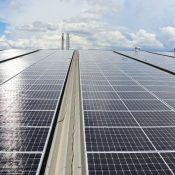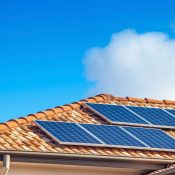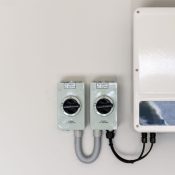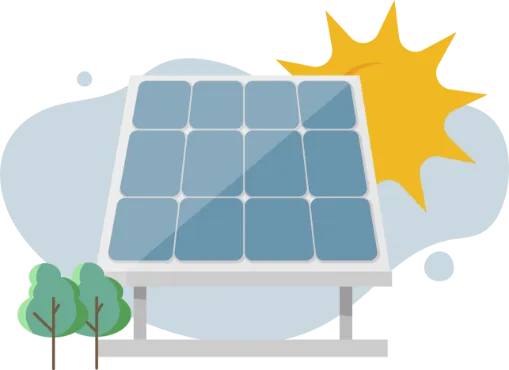How Solar Panels Impact the Environment
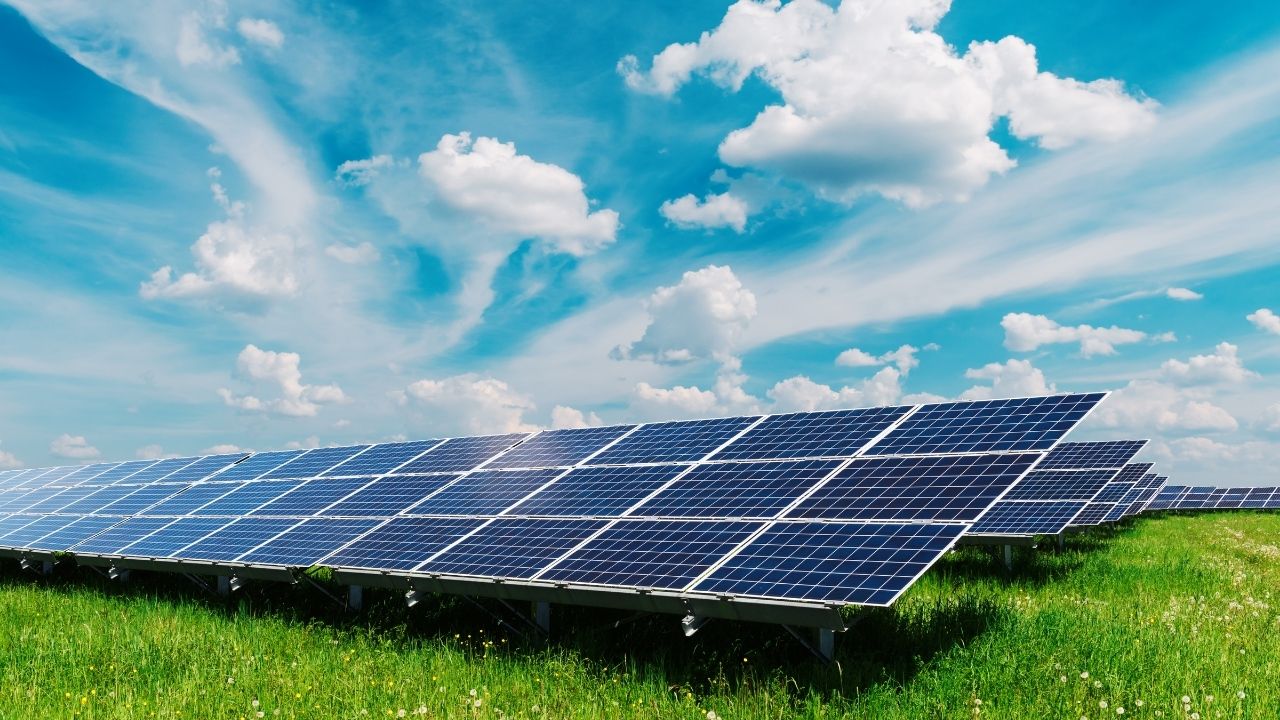
Do you pay close attention to your carbon footprint and think about switching to a more eco-friendly way to heat your home? There are times when we worry about how the choices we make might affect the environment.
This is especially true when we know that solar panels can produce energy without emitting any pollution for more than 25 years after they are installed.
This blog is to show the good, the bad, and the ugly effects that solar power has on our world. Everything you need to know is right here, so you can make an informed choice.
So get a cup of coffee, find a comfortable place to sit, and let’s start this eco-friendly energy change!
Environmental Impacts Of Solar Panels
Solar panels have a range of environmental impacts, including land use and ecological changes, impacts on soil, water, and air resources, the use of dangerous materials, and life-cycle global warming emissions.
1) Land Use And Ecological Impacts
Solar panels need land to work. Lots of it. This can lead to the loss of habitat for plants and animals. On one hand, we have clean energy, but on the other, it takes away homes from wildlife.
We also have impacts on water systems due to changes in rain flow caused by large solar farms. We must be smart about where we put our solar panels! It’s best if we use spaces that don’t harm nature, like rooftops or old parking lots.
2) Impacts On Soil, Water, And Air Resources
Solar panels have a positive impact on soil, water, and air resources. Unlike traditional energy sources that release harmful pollutants into the atmosphere, solar power produces clean electricity without contributing to air pollution.
This means better air quality for all of us to breathe. Additionally, solar energy production does not require excessive amounts of water like other forms of power generation, which helps conserve this precious resource.
Furthermore, solar panels do not release any hazardous materials into the soil and have a minimal impact on ecosystems. By choosing solar power, we can help protect our environment and ensure a healthier future for everyone.
3) Use Of Harmful Material
Solar panels are a great source of clean and renewable energy, but it’s important to be aware of the materials used in their production. Some of these materials can be hazardous to the environment if not managed properly.
For example, certain chemicals used in solar panel manufacturing can have negative effects on soil and water resources if they are released into the environment. This is why it’s crucial that proper disposal and recycling processes are in place to prevent any potential harm.
By ensuring responsible handling of these materials, we can continue to enjoy the benefits of solar energy while minimising its environmental impact.
4) Life-Cycle Global Warming Emissions
Solar panels have a positive impact on the environment because they reduce life-cycle global warming emissions. This means that during their entire lifespan, including manufacturing and installation, solar panels produce very low levels of greenhouse gases compared to traditional energy sources.
Estimates show that solar systems emit between 0.07 and 0.18 pounds of carbon dioxide equivalent per kilowatt-hour, which is significantly lower than fossil fuel-based electricity generation methods.
By choosing solar power, Irish homeowners can help combat climate change and contribute to a cleaner, greener future for our planet.
Recycling Solar Panels
We also need to think about the end-of-life phase of solar panels. When solar panels reach the end of their lifespan, they can be recycled. Recycling helps to recover valuable materials like silicon, aluminium, glass, and copper from the panels.
These materials can then be used for manufacturing new solar panels or other products. By recycling solar panels instead of disposing of them in landfills, we can reduce waste and conserve resources.
It’s important to ensure that old panels are properly collected and sent for recycling at specialised facilities. This way, we can continue to benefit from clean energy while minimising our impact on the environment.
Promoting Sustainable Energy Practises
Transitioning to electric vehicles is a key way to promote sustainable energy practises and reduce greenhouse gas emissions.
Transition to electric vehicles
Now let’s talk about another important aspect of promoting sustainable energy practises: the transition to electric vehicles. As Irish homeowners, we have the opportunity to contribute to a cleaner and greener future by choosing electric cars.
By transitioning from traditional gasoline or diesel vehicles to electric ones, we can greatly reduce our carbon footprint and decrease air pollution. Electric vehicles produce zero emissions while driving, which helps improve air quality in our communities.
Additionally, by relying on renewable energy sources like solar power for charging our EVs, we can further minimise greenhouse gas emissions associated with transportation. This shift towards electric vehicles is an essential step in achieving a more sustainable and environmentally friendly transportation system for Ireland.
Circular Business Models
We’re excited to share with you the positive impact of circular business models in the solar energy industry. Circular business models focus on reducing waste and maximising resource efficiency, creating a sustainable and environmentally friendly approach.
In the context of solar panels, this means recycling and reusing materials at their end-of-life stage instead of disposing of them. By adopting circular practises, we can minimise the environmental footprint of solar panel production and ensure that valuable resources are not wasted.
These innovative models contribute to a greener future by promoting resource conservation and reducing our dependence on raw materials.
Impact Of Industrial Emissions
When it comes to solar panels, we often focus on the positive environmental impact they have. However, it’s important to consider the potentially negative effects of industrial emissions during their production.
The manufacturing process of solar panels involves energy-intensive procedures that can release greenhouse gases into the atmosphere. These emissions contribute to air pollution and ultimately worsen climate change.
As Irish homeowners looking to adopt sustainable practises, it’s crucial to be aware of these impacts and support initiatives that promote cleaner manufacturing methods for solar panels.
Conclusion
When it comes to making energy use more efficient, solar panels are a bright spot. When they are being made, they do have some negative effects on the environment, but in the long run, they will help the environment by lowering greenhouse gas emissions and making us less dependent on fossil fuels. We can expect an even smaller impact on the environment as technology improves and better ways to recycle these panels are found.
However, if you’re looking to join this green revolution, Going Solar offers expert residential and commercial solar panel installation services. By choosing them, you’re not only investing in a cleaner future but also actively supporting Ireland’s renewable energy goals.
Planning a switch to solar energy?
Contact Going Solar now and Get Free Advice & Quote Within Minutes!
Frequently Asked Questions
Contact Going Solar Now!
Joe Brennan
Founder @ Going Solar
Joe Brennan, the founder of Going Solar, is dedicated to making solar power mainstream in Ireland and meet SEAI objectives. With a focus on affordability and sustainability, he is bringing renewable energy solutions to homes, reducing costs & environmental impact.
Recent Posts

